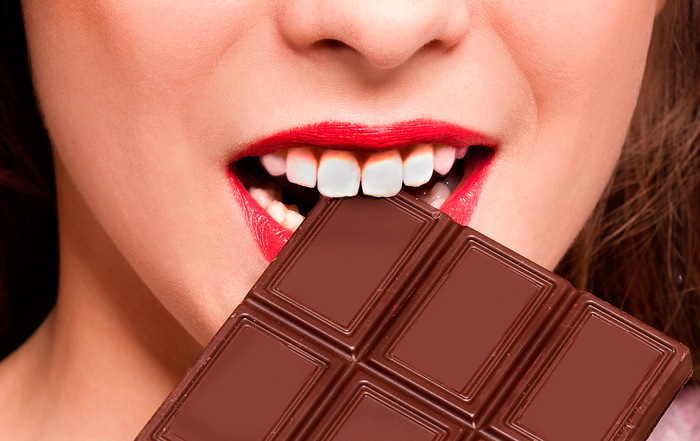Here’s why we’re willing to pay more for unhealthy foods we crave, according to science
04/28/2018 / By Zoey Sky

According to a study, we don’t usually mind paying for unhealthy foods, especially when we’re craving for some chocolates or chips.
Results from neuroscience research have determined that we’ll pay more for bigger portions of the food that we crave. The research, which was published in the journal Proceedings of the National Academy of Sciences (PNAS), has isolated a major hindrance when it comes to our attempts to live healthier.
How cravings affect our willingness to buy snacks
Anna Konova, the study’s lead author and a postdoctoral researcher at the New York University’s (NYU) Center for Neural Science, said that individuals who exert effort to eat healthier foods can often be influenced by their cravings.
The results of the study revealed that most of the time cravings can overpower our conscious efforts to eat healthy foods. Most people will experience cravings, and this strong desire to snack on certain unhealthy foods affect the choices that we make every day. They can give us the sense of acquiring “those things that made us feel good in the past — even if those things may not be consistent with our current health goals.”
Kenway Louie, an NYU research assistant professor, and Paul Glimcher, an NYU professor and director of NYU’s Institute for the Interdisciplinary Study of Decision Making, were the study’s other co-authors.
Experts from various sectors, like economics, marketing, medicine, and psychology, have started examining how our psychological states and physiological needs are linked to the choices we make as consumers.

One specific area of concern is craving, a well-known state of mind that often leads to addiction. In the past few years, cravings have also been connected to harmful eating disorders and obesity.
However, the researchers acknowledge that there is more to learn about the nature of craving and how it’s connected to our behavior and the choices that we make.
For the study, the scientists ran a series of experiments where participants were asked to state how much they would pay for certain snack foods after developing a craving for one of them. Konova et al. then noted the notable differences in the desire for a specific food item (such as a chocolate bar or a granola bar) before and after exposure to the item indicated cravings.
The findings concluded that most individuals don’t mind paying more for the same snack food item after being exposed to it and if they were asked to think of certain memories of eating said snack before the exposure.
The researchers shared that this happened despite the participant’s hunger level before and after the exposure. They noted that this could imply that craving and hunger are two separate experiences.
Louie explained that a person’s craving for a chocolate bar doesn’t make them hungry. It could just mean that you want to eat a Snickers bar specifically. Additionally, there was a spillover effect as the same can be said for similar food items that subjects were never exposed to (such as other kinds of chocolate and caramel candy bars).
The researchers also discovered stronger effects, like a higher likelihood of subjects being willing to pay for snacks that they craved, when the foods had more calories, fat, or sugar content, like a chocolate bar or cheese puffs, compared to healthier snacks like a granola bar. (Related: 10 Definite Ways to Beat Sugar Cravings.)
The experiments also uncovered a link between craving, portion, and price. In fact, individuals didn’t mind paying a lot more for bigger portions of the food that they craved.
Konova concluded, “It appears that craving boosts or multiplies the economic value of the craved food.”
How to deal with cravings effectively
If you’re struggling to eat healthily because of your strong cravings, try some of the tips below to curb your snacking:
- Don’t deprive yourself of snacks – Eating healthy isn’t synonymous with depriving yourself. The key is self-control and portioning. You can occasionally have snacks, but don’t overeat.
- Snack on natural foods – Try to avoid snacks with artificial sweeteners and artificially sweetened foods. Eating artificially sweetened foods and beverages can influence your body’s natural ability to monitor calories and increase your risk of overeating.
- Wait before you have a snack – Sometimes, you may think you need a snack but your brain may just feel like it has to eat something. Wait for 20 minutes to find out if you’re really hungry. If you’re not hungry, the urge will pass after some time.
You can read more articles about fresh food and tips, including how to avoid unhealthy cravings, at Fresh.news.
Sources include:
Submit a correction >>
Tagged Under:
cravings, diet, eat healthy, food alternatives, food cravings, food prices, Fresh, fresh foods, fruits, Healthy, healthy food alternatives, nutrition, portion control, portions, Price, snack foods, snacks, sugar, unhealthy food, vegetables
This article may contain statements that reflect the opinion of the author





















